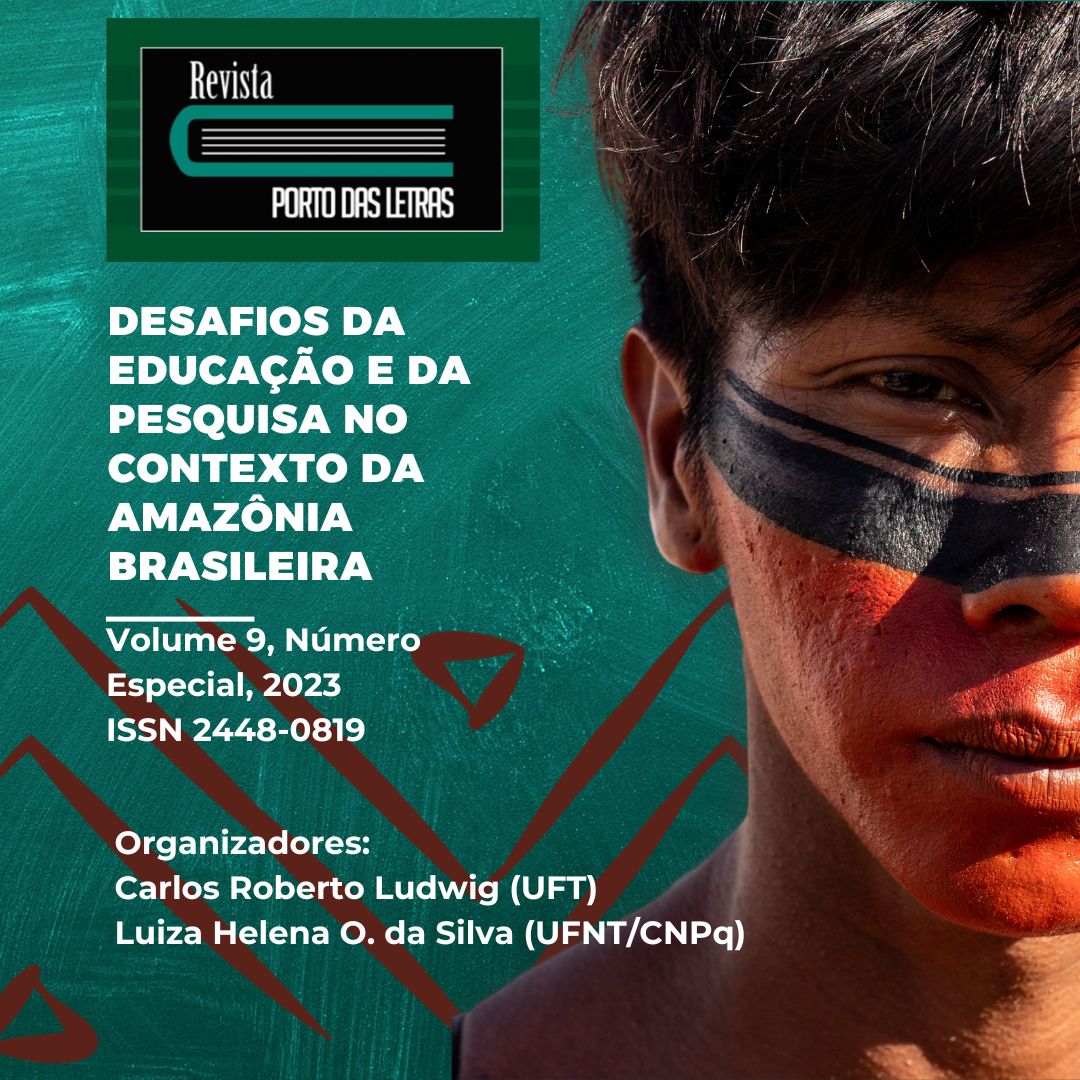Análise linguístico-morfológica da terminologia da área de formação continuada de professores dos anos iniciais
Resumo
Este artigo busca apresentar uma análise linguístico-morfológica dos termos que constituem o domínio da Formação Continuada de Professores dos Anos Iniciais do Ensino Fundamental. Trata-se do recorte de uma pesquisa realizada em nível de doutorado, fundamentada nos estudos do léxico, em especial da Terminologia, a partir de autores como Cabré (1999), Biderman (2001), Barros (2004), Krieger e Finatto (2004). O AntConc foi uma das ferramentas computacionais empregadas para processamento do corpus e análise dos 2.851 termos repertoriados pela pesquisa, os quais foram distribuídos em três subdomínios: conhecimentos linguísticos, conhecimentos matemáticos e conhecimentos didático-educacionais. A análise dos termos demonstrou que o perfil terminológico do domínio estudado é formado, em sua maioria, por termos complexos, de base substantival e que a derivação sufixal foi o processo de formação mais produtivo na constituição dos termos simples do conjunto terminológico estudado. Destacam-se, ainda, a presença de estrangeirismos, especialmente, entre os gêneros discursivos digitais. Ademais, há uma ocorrência significativa de siglas, com predominância para a acronímia. A relevância do recorte de pesquisa apresentado neste trabalho está na análise dos termos de uma área em constituição (no que se refere a identificação de seu sistema de conceitos), o que poderá servir de referência para o desenvolvimento de estudos futuros, bem como para a elaboração de objetos terminográficos do domínio do conhecimento estudado.
Referências
ALVES, I. M. Neologismo: criação lexical. São Paulo: Ática, 2004.
BARBOSA, M. A. Terminologia e lexicologia: plurissignificação e tratamento transdisciplinar das unidades lexicais nos discursos etno-literários. In: Revista de Letras, n. 27, v. 1/2, p. 103-107, 2005.
BARROS, L. A. Curso Básico de Terminologia. São Paulo: EDUSP, 2004.
AUTORA. Título da tese. (Tese de Doutorado/ UFNT). Araguaína, 2022.
BASILIO, M. Formação e classes de palavras no português do Brasil. – 3. ed. – São Paulo: Contexto, 2011.
BENVENISTE, É. Problemas de Linguística Geral II. Tradução Eduardo Guimarães. Campinas, Pontes, 1989.
BIDERMAN, Maria Tereza Camargo. As ciências do léxico. In: OLIVEIRA, Ana Maria Pinto Pires de; ISQUERDO, Aparecida Negri. (Orgs.). As ciências do léxico: lexicologia, lexicografia, terminologia. 2. ed. Campo Grande, MS: UFMS, 2001. p. 13-22.
BRITO, V. M. de; VIÉDES, S. C. A. A Política Educacional de Alfabetização da Criança Consubstanciada Pelos Programas, Projetos e Pactos: O Novo ou Tudo de Novo? Revista HISTEDBR [online], Campinas, n. 63, p. 147-171, 2015.
CABRÉ, M. T.; ESTOPÀ, R. Unidades de conocimiento especializado: caracterización y tipología. Coneixement, llenguatge i discurs especialitzat, v. 7, Documenta Universitaria: 2005.
CABRÉ, M. T. Terminología: representación y comunicación - Elementos para una teoría de base comunicativa y outros artículos. Série Monografies. Barcelona: Universitat Pompeu Fabra, Institut Universitari de Lingüística Aplicada, 1999.
FELBER, H. Manuel de terminologie. Paris: UNESCO, 1984.
ISO 1087. Terminology – Vocabulary. Genebra/Switzerland. ISO, 1990, 17 p.
KRIEGER, M. G.; FINATTO, M. J. B. Introdução à Terminologia: teoria & prática. - 1. ed. - São Paulo: Contexto, 2004. 223p.
KRIEGER, M. G. Terminologia em contextos integradores: funcionalidade e fundamentos. Organon, Porto Alegre, n. 26, 1998.
PETTER, M. M. T. Morfologia. In: Introdução à Linguística II: princípios de análise. / José Luiz Fiorin (org.). – 5. ed. São Paulo: Contexto, 2016.
SANTIAGO, M. S.; ABREU, S. P.de. Educação a Distância no Brasil: análise linguística preliminar de termos. In: XII Simposio Iberoamericano de Terminología (RITerm), Buenos Aires: Actas, p. 1-18, 2010.
Downloads
Publicado
Como Citar
Edição
Seção
Licença
Os autores concordam com os termos da Declaração de Direito Autoral, que se aplicará a esta submissão caso seja publicada nesta revista (comentários ao editor podem ser incluídos a seguir).

